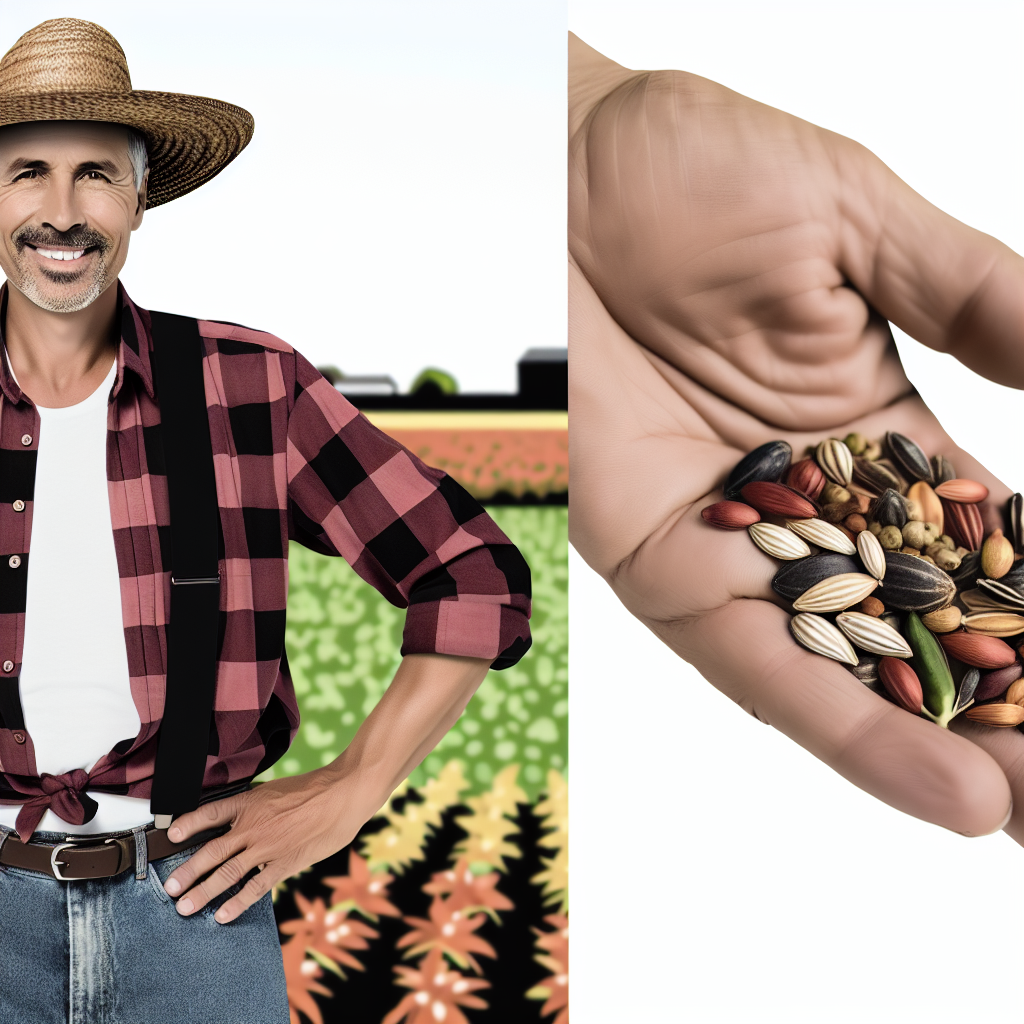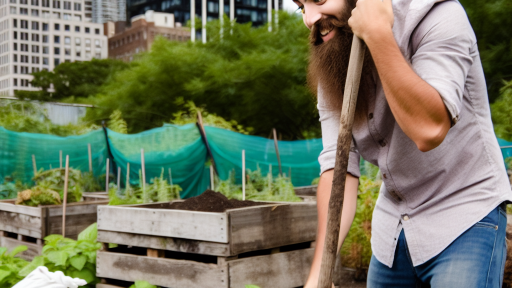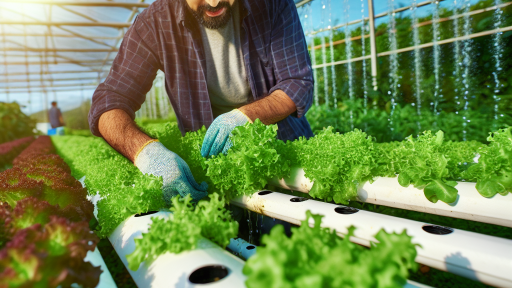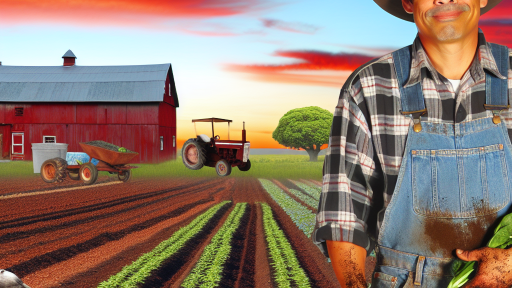Introduction to Heirloom Seeds
Heirloom seeds refer to open-pollinated varieties that have been cultivated for many generations.
These seeds are often passed down within families, preserving unique traits.
Farmers appreciate heirloom seeds for their diversity and adaptability.
Unlike hybrid seeds, heirloom seeds can be saved and replanted each year.
This practice ensures that farmers maintain control over their crops.
Many heirloom varieties possess distinct flavors and colors, enhancing culinary experiences.
Moreover, heirloom seeds contribute to sustainable agriculture practices.
They require fewer chemical inputs, promoting healthier ecosystems.
In addition, heirloom seed cultivation supports local biodiversity.
As farmers cultivate these seeds, they guard against monoculture risks.
Thus, heirloom seeds play a crucial role in the future of sustainable farming.
Historical Significance of Heirloom Seeds in Agriculture
Origins of Heirloom Seeds
Heirloom seeds trace their roots back to ancient agricultural practices.
Farmers saved seeds from their best crops for future planting.
This method ensured the preservation of crop varieties over generations.
As a result, heirloom varieties became integral to local food cultures.
Transform Your Agribusiness
Unlock your farm's potential with expert advice tailored to your needs. Get actionable steps that drive real results.
Get StartedCultural Importance
Many heirloom seeds carry stories of cultural heritage and traditions.
Communities often used specific seeds for ceremonies and celebrations.
This cultural significance reinforces community identity and pride.
Moreover, heirloom seeds contribute to regional culinary diversity.
Impact on Biodiversity
Heirloom seeds play a critical role in maintaining agricultural biodiversity.
Farmers cultivate a wider range of plant varieties with heirlooms.
These diverse crops help protect local ecosystems from pests and disease.
Additionally, they offer resilience against climate change.
Commercial Significance
Heirloom seeds have gained popularity in specialty markets.
Consumers often seek unique flavors and varieties found in heirlooms.
This demand supports small-scale farmers and local economies.
Furthermore, heirloom seeds can fetch higher prices due to their rarity.
Continuing the Legacy
Farmers today still value heirloom seeds for their unique traits.
Many agricultural organizations promote the use of heirloom varieties.
Efforts to preserve these seeds bolster sustainable farming practices.
Continuing to cultivate heirlooms ensures future generations can benefit.
Biodiversity Preservation Through Heirloom Seeds
Importance of Genetic Diversity
Heirloom seeds contribute significantly to genetic diversity in agriculture.
This diversity enhances resilience against pests and diseases.
Additionally, it allows plants to adapt to changing environmental conditions.
Farmers benefit from a wider range of traits by using heirloom varieties.
Cultural Heritage and Seed Savers
Heirloom seeds carry cultural significance passed down through generations.
They represent unique flavors, textures, and growing practices specific to communities.
Seed savers play a critical role by preserving these specific varieties.
As a result, they maintain a connection to agricultural history.
Showcase Your Farming Business
Publish your professional farming services profile on our blog for a one-time fee of $200 and reach a dedicated audience of farmers and agribusiness owners.
Publish Your ProfileEnhancing Local Ecosystems
Planting heirloom seeds fosters biodiversity within local ecosystems.
Diverse crops attract beneficial insects and pollinators.
This natural pest control reduces the need for chemical pesticides.
Furthermore, diversified plantings promote healthier soil microbiomes.
Promoting Sustainable Practices
Heirloom seeds encourage sustainable farming practices.
Farmers can save seeds from their crops for future planting.
This practice reduces dependence on commercial seed suppliers.
Ultimately, it fosters self-sufficiency and resilience among farming communities.
Challenges and Considerations
Despite their benefits, using heirloom seeds comes with challenges.
Heirloom varieties may require more careful cultivation than hybrids.
Farmers need to be knowledgeable about seed saving techniques.
Moreover, heirloom crops may have lower yields compared to modern varieties.
However, the trade-offs often lead to greater ecological benefits.
You Might Also Like: Preserving Heritage Varieties on Your Farm
Nutritional Benefits of Heirloom Produce Compared to Hybrid Varieties
Rich Flavor Profiles
Heirloom varieties often feature richer flavors than hybrids.
This distinct taste results from traditional breeding methods.
As a result, many chefs prefer heirloom produce for gourmet dishes.
Higher Nutritional Value
Research shows heirloom fruits and vegetables typically contain more nutrients.
They often have higher levels of antioxidants and vitamins.
For example, heirloom tomatoes possess greater vitamin C content.
Preservation of Genetic Diversity
Heirloom seeds preserve a wide variety of genetics.
This diversity contributes to the resilience of food systems.
Moreover, diverse crops can adapt better to climate changes.
Environmental Benefits
Growing heirloom varieties encourages sustainable farming practices.
This method reduces the reliance on chemical fertilizers and pesticides.
Consequently, it promotes healthier soil and ecosystems.
Support for Local Biodiversity
Heirloom crops support local ecosystems and wildlife.
They provide habitat and food for various species.
This practice helps maintain the balance within local environments.
Connecting to Tradition
Heirloom seeds link us to agricultural heritage.
They allow farmers to cultivate plants with rich histories.
Each heirloom variety carries stories passed down through generations.
See Related Content: Setting Up Your First Aquaponic System
Cost-effectiveness of Growing Heirloom Seeds in Sustainable Farming
Reduced Seed Costs
Heirloom seeds often come with lower initial costs compared to hybrid varieties.
Farmers can save money by preserving seeds from their own plants each year.
This practice promotes self-sufficiency in farming operations.
Less Dependence on Chemical Inputs
Heirloom varieties tend to require fewer chemical fertilizers and pesticides.
They often exhibit natural resilience to local pests and diseases.
Reducing chemical usage lowers overall farming expenses.
Higher Crop Diversity
Growing heirloom seeds enhances biodiversity on farms.
Showcase Your Farming Business
Publish your professional farming services profile on our blog for a one-time fee of $200 and reach a dedicated audience of farmers and agribusiness owners.
Publish Your ProfileDiverse crops lead to healthier soil and improved ecosystem services.
This diversity can protect farmers against the risks associated with monoculture.
Increased Market Demand
Consumers increasingly seek heirloom products for their unique flavors and qualities.
Farmers can capitalize on this trend by growing distinctive heirloom varieties.
Higher market prices for these crops can boost farm income significantly.
Long-term Sustainability
Heirloom seeds promote sustainable farming practices over time.
They encourage farms to maintain ecological balance and health.
Investing in heirloom seeds today lays the groundwork for future agricultural resilience.
See Related Content: Best Plants for Hydroponic Systems

Resistance to Local Pests and Diseases with Heirloom Varieties
Understanding Heirloom Seeds
Heirloom seeds are open-pollinated varieties passed down through generations.
These seeds retain the genetic diversity needed for sustainable farming.
Farmers often prefer them for their natural resilience.
Natural Resistance to Pests
Heirloom varieties often show resistance to local pests.
This resistance means less reliance on chemical pesticides.
Consequently, it promotes a healthier ecosystem.
Farmers who choose heirloom seeds benefit from reduced crop losses.
More importantly, it creates a balance within the local environment.
Adaptation to Local Diseases
Heirloom seeds adapt well to the diseases common in their regions.
Their long history of cultivation helps them withstand these challenges.
Farmers notice fewer disease outbreaks in heirloom crops.
This results in more stable yields over time.
In the end, it supports the farm’s overall resilience.
Building Biodiversity
Using heirloom varieties contributes to agricultural biodiversity.
Biodiversity helps sustain local ecosystems and soil health.
It allows both farmers and nature to thrive together.
Moreover, diverse crops can confuse pests and disrupt their lifecycle.
Enhancing Soil Health
Heirloom plants often require less chemical intervention.
This approach leads to healthier, more sustainable soil.
Healthy soil supports a robust microbial ecosystem.
Thus, heirloom varieties play a crucial role in soil rejuvenation.
Farmers enjoy higher yields without compromising environmental integrity.
Find Out More: Harvesting Techniques For Container-Grown Plants
Seed Saving Practices and Their Importance in Sustainable Agriculture
Understanding Seed Saving
Seed saving refers to the practice of collecting seeds from plants for future planting.
This method enables farmers to cultivate crops suited to their local environment.
Moreover, it fosters a connection between farmers and their land.
By saving seeds, they use varieties that have adapted over time.
In turn, this promotes biodiversity and genetic diversity in crops.
Benefits of Seed Saving
Saving seeds provides numerous benefits for sustainable farming practices.
It reduces dependency on commercial seed suppliers.
This autonomy is crucial for farmers, especially in developing regions.
Showcase Your Farming Business
Publish your professional farming services profile on our blog for a one-time fee of $200 and reach a dedicated audience of farmers and agribusiness owners.
Publish Your ProfileAdditionally, saved seeds often yield healthier and more resilient plants.
Farmers can select seeds from the best-performing plants each season.
Conserving Resources
Seed saving plays a vital role in conserving natural resources.
Farmers can lower their costs by not purchasing seeds yearly.
Additionally, it minimizes the environmental impact associated with seed production.
Ultimately, this helps in maintaining the ecological balance.
Promoting Local Adaptation
Saved seeds adapt to local climate conditions and pest threats.
This local adaptation is essential for sustainable agriculture.
It supports the development of crops that thrive in specific areas.
Consequently, farmers can achieve better harvests with less chemical input.
Preserving Cultural Heritage
Seed saving preserves cultural heritage and traditional farming practices.
Many heirloom varieties carry historical significance and unique flavors.
By saving seeds, farmers safeguard these valuable traits for future generations.
Furthermore, this encourages the continuation of sustainable farming knowledge.
The Role of Heirloom Seeds in Promoting Local Food Systems and Community Resilience
Preserving Biodiversity
Heirloom seeds help maintain genetic diversity in agriculture.
These seeds ensure a broader range of traits and resilience.
They can adapt to local climates and soil conditions effectively.
Using heirloom seeds reduces reliance on commercial hybrids.
This practice promotes ecosystem stability and health.
Support for Local Economies
Heirloom seeds empower local farmers and agricultural communities.
They allow growers to sell unique, high-quality produce.
This strengthens local food systems, promoting self-sufficiency.
Farmers can share seeds and knowledge within their communities.
Consequently, local economies benefit from diverse agricultural practices.
Encouraging Sustainable Practices
Many heirloom varieties require less synthetic input than hybrids.
This leads to reduced chemical runoff and healthier soils.
Heirloom cultivation promotes organic farming techniques.
These practices foster community connections and collaboration.
Through shared knowledge, communities grow stronger and more sustainable.
Enhancing Food Security
Diverse crops ensure a stable food supply throughout the seasons.
Heirloom seeds can provide food during challenging conditions.
They offer a reliable source of nutrition for local populations.
By fostering local food systems, communities mitigate supply chain risks.
This enhances resilience against external shocks and instability.
Additional Resources
Small Scale Wholesale | High Mowing Organic Non-GMO Seeds
Mai Nguyen: How Food Can Turn a “Place” into a “Home” | Organic …




